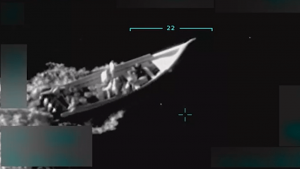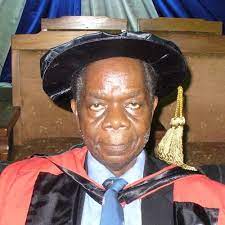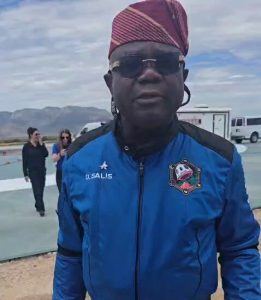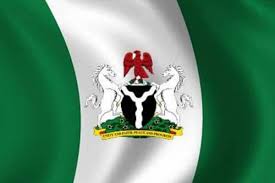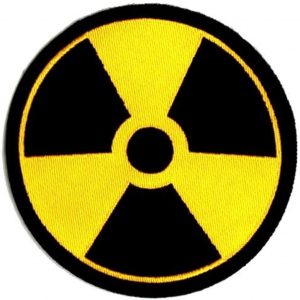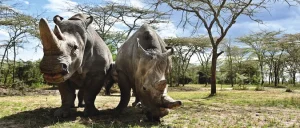Nigeria’s nuclear regulator is the Nigerian Nuclear Regulatory Authority, NNRA. It was created by the Nuclear Safety and Radiation Protection Act (Act 19) of 1995, but it came into being in May, 2001.
The pioneer Director-General was Professor Shamsideen B. Elegba.
He worked hard to ensure that operations were never below the minimum globally accepted standards and also maintained the independence of the nuclear regulator.
He boldly refused that NNRA should be placed under the Federal Ministry of Science and Technology because its agencies were under his regulatory control.
Professor Elegba also embarked on aggressive capacity building.
One of those who benefited was Mr Martin Ogharandukun, who joined from the Energy Commission of Nigeria, but instead of pursuing a specialisation course in nuclear safety, he went into Solid State Physics in University of Abuja, Nigeria.
As required by the rules, on completion of his second term, Professor Elegba handed over to the most senior director, Bulus Yabaya, Director of Administration and Finance, as Acting Director-General in April, 2011.
After eating and drinking on the night of 27 May, 2011, in an official NNRA dinner, Mr Yabaya was sick and was pronounced dead from food poisoning, same night, in National Hospital, Abuja.
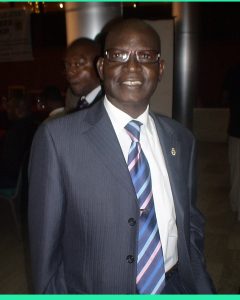
Bulus Yabaya
There was fear and tension in NNRA as Mr Yabaya’s family came to protest his death.
In this confusion, Martin Ogharandukun, as some observers say, usurped the office of Acting Director-General from 31 May, 2011, claiming to be the most senior director after Mr Bulus Yabaya.
No one handed over to him and he was never appointed by the President of Nigeria as required by Part 111, 8 (1) of the NNRA Act.
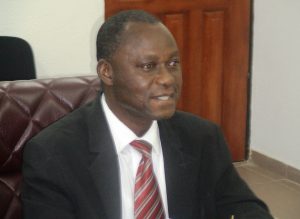
Martin Ogharandukun
He proceeded to change the signatories to NNRA’s accounts to include his name and started collecting allowance as an Acting DG/CEO from government/NNRA funds.
He posted on NNRA’s website (www.nnra.gov.ng) that the management of NNRA has appointed him the Acting DG/CEO pending the appointment of a substantive DG and went ahead to change the authority’s letter-headed papers to reflect his new “appointment”.
He carried out the full functions and duties of an Acting DG/CEO of the Authority, awarding contracts and approving payments as in the contract work in NNRA Zonal Office in Port Harcourt for 55 million naira.
The conditions for acting appointment are in Section 6 of the Public Service Rules, PSR, and clearly spelt out in Rules 020601, 020602, 020603, 020605 and 020606.
Under these Rules, the Federal Civil Service Commission must be notified and the appointment approved and gazetted by it, with the dates of commencement and cessation of the acting appointment clearly stated.
These conditions were not followed.
Similarly, a Deputy Director, Mr Akim Bakreen, made himself the Acting Director of Administration and Finance of NNRA, also without following the PSR. Since June, 2011, he included his name as a signatory to NNRA accounts and received the allowance of an Acting Director.
Furthermore, under the NNRA Act, directors are to be appointed (not promoted).
Without an appointment letter and without even taking a promotion examination, Akim Bakreen went on to claim he has been promoted and occupied the office of Director of Administration and Finance of NNRA.

Akim Bakreen
He started performing the functions and collecting the full emolument.
From there, without resigning his appointment with NNRA, Akim Bakreen went into partisan politics, contesting in the shadow elections for PDP Lagos Central Senatorial district and lost.
He continued as Director of Administration and Finance, NNRA.
That shadow election was to produce a senatorial candidate for the party in the 2015 general election which was finally won by Senator Oluremi Tinubu of APC.
Akim Bakreen claimed to have studied, up to a Masters’ degree, in an American university that has closed, so his qualifications could not be verified.
He worked closely with Martin Ogharandukun.
Meanwhile, Martin Ogharandukun hiked the licensing fee for ionizing-radiation equipment in Nigeria to a minimum of two million naira for X-ray machines; four million naira for CT scanning machines and much higher for heavier machines.
Most users could not afford to pay and were threatened with close down (see Vanguard newspaper of 9 October, 2012: “Radioactive material users, NNRA on warpath over charges”).
Most healthcare providers like the University College Hospital, UCH, Ibadan, and National Hospital, Abuja, were unable to pay and renew their licences.
On March 27, 2014, the Punch newspaper published an investigative report on UCH entitled: “Afflicted with cancer, denied treatment.”
This had serious implications for the healthcare system, leading to a national outcry.
Experts who spoke out include the Chairman, Faculty of Radiology, National Postgraduate Medical College of Nigeria, Professor Abiodun Adeyinka, and Chief Consultant Radiologist, National Hospital, Abuja, Dr Olubunmi Olatunji (see Daily Trust newspaper of 17 August, 2015: “Reduce Fees To Save Lives, Radiologists Urge NNRA”).
The then President of Nigerian Senate, Senator David Mark, intervened and ordered Martin Ogharandukun to revert to the old fee of 250,000 naira.
Stakeholders in the industry started making a case for the appointment of a qualified professional in nuclear safety and radiation protection soon as Chief Executive of NNRA.
Some of them received death threats. One of them, a vocal university professor, was abducted by unknown persons.
The Nuclear Safety and Radiation Protection Act 1995, Part 111, 8 (2) states: “The Director-General (of NNRA) shall be a person of proven integrity and shall have such qualifications and practical experience in the application of nuclear energy and ionizing radiation in science and technology, nuclear safety and radiation process.”
A lawyer in a human rights and accountability group, HURAIN, went to a Federal High Court, Abuja, seeking that Martin Ogharandukun be compelled, under the Freedom of Information Act, to name the authority that appointed him Acting Director-General.
The lawyer pulled out of the case, citing several threats.
If threats were made, it was not really known who made them.
It took three years until President Goodluck Jonathan sacked Martin Ogharandukun (April 30, 2014, Punch newspaper) and appointed Dim Lawrence Anikwe, a Professor of Nuclear Physics in Ahmadu Bello University, Zaria, as Chief Executive.
As a result, an important institution like the NNRA, was left without a substantive Director-General for that long.
Even under the Public Service Rule 020604, an acting appointment should not exceed six months, but it may be renewed for a maximum of another six months.
Meanwhile, Martin Ogharandukun had written relevant government agencies and clients of NNRA asking them not to recognise Professor Anikwe’s appointment, made by President Jonathan, as not being properly made.
With that, the handing-over formalities were delayed by a few months before Martin Ogharandukun was pushed out of NNRA.
The Nation newspaper of April 22, 2014, in a story entitled, “How Presidency sacked Nuclear agency’s DG,” said Martin Ogharandukun was sacked for “abuse of office, corruption and high-handedness.”
The Nation newspaper reports that the Senate Committee on Health that investigated Martin Ogharandukun “was shocked at the brazen abuse of office and lack of respect to human lives … and he (Ogharandukun) was declared unfit to hold such a sensitive public office.”
Then, after one five-year tenure, the appointment of Professor Anikwe, a Christian from Anambra State, southeast Nigeria, was not renewed by President Muhammadu Buhari.
Professor Anikwe handed over to Mr Isa Sambo who, incidentally, was not the most senior and was directed to hand over to Dr Yau Idris, a young director, Moslem from Kaduna State, northwest Nigeria, as Acting Director-General.
Dr Yau Idris rose through the ranks rapidly in NNRA: from Chief Regulatory Officer, by-passing Assistant Director, to Deputy Director and Director, all under three years.
PSR requires an officer to spend at least four years as Deputy Director before becoming a Director. For the other management levels, it is three years.
His acting appointment was confirmed on schedule with effect from 19 February, 2020, by President Buhari and he became substantive Director-General of NNRA.

None of these men who were appointed, handed over to, nor the so-called usurper, Martin Ogharandukun, stakeholders feel, can fit into the big shoes of Professor Elegba.
Martin Ogharandukun stopped three members of staff who won foreign scholarships from studying and even sacked them.
He illegally, terminated the appointment of the Chief Information Officer in NNRA for not including him in a popular two-and-half hour live programme, Tuesday Live, on national television.
The Chief Executive of a sister agency, Nigeria Atomic Energy Commission, NAEC, Professor Erepamo Osaisai, was in it and spoke eloquently on the state of the nuclear industry in Nigeria and the way forward.
Professor Elegba had appeared twice before in that programme.
Martin Ogharandukun had NNRA pay the sponsorship fee of one and half million naira to appear also on Tuesday Live.
The live programme, for the first time, failed as he wanted to be the sole participant and got into a heated argument with the famous anchor, Cyril Stober, just before air time.
Nigerian Television Authority, NTA, as national television, has an in-house policy of balancing federal character and gender in national programmes.
He wrote NTA asking for a refund but was told the programme failed due to his fault and, therefore, deserves no refund and was not getting one.
The only two professors left in NNRA were frustrated out, one after the other, by NNRA management.
One of them received several calls from a man, with hidden identity and telephone number, saying he has been hired to kill him if he does not leave NNRA.
The professor adopted a conciliatory approach in all their telephone “chats.”
The anonymous caller then said he is delaying the execution order and giving him more time to leave because, “You’re too innocent a blood to be shed.”
In this period, Professor Elegba’s capacity-building exercise suffered irretrievable setback.
The Federal Government of Nigeria, with the support of the International Atomic Energy Agency, IAEA, is pursuing a nuclear electricity programme.
The lead agency is the Nigeria Atomic Energy Commission, NAEC.
The local approving agency is the Nigerian Nuclear Regulatory Authority, NNRA.
The Nigerian Minister of Science and Technology then, Dr Ogbonnaya Onu, in an interview with the News Agency of Nigeria, NAN, on 21 October, 2006, said Nigeria is working with the Russian State Nuclear Corporation, Rosatom, towards achieving that nuclear electricity goal.
Again, while declaring open the Nigeria Energy Calculator 2050 Stakeholders’ Engagement in Abuja on 22 April, 2021, he defended the decision, saying nuclear energy will stabilise power supply in the country.
The implementation of that nuclear electricity programme was started by Professor Erepamo Franklin Osaisai as Chief Executive of NAEC.
He emerged the best overall graduating student from the University of Port Harcourt, Nigeria, and holds Master’s and doctorate degrees in Nuclear Engineering from the prestigious University of California, Berkeley, USA.
He felt that the nuclear electricity option will diversify the energy mix for Nigeria as some oil-rich countries like United Arab Emirates, Saudi Arabia, Venezuela, Libya, Russia etc are doing.
By 2008, the IAEA declared that Professor Osaisai’s NAEC has passed the first of the three phases in capacity to run a Nuclear Power Plant for electricity generation.
Electricity supply is a big issue in Nigeria.
Total output is about 5,000 mw from total grid capacity of about 10,000 mw for 200 million people.
South Africa, less than half Nigeria’s population, has 1,900 mw of nuclear electricity from two reactors, and produces a total of 40,000 mw, while US produces 900,000 mw.
A World Bank report in 2021 indicates that 78% of electricity consumers in Nigeria get less than 12 hours of electric power every day.
The Nigerian Electricity Regulatory Commission however, puts the figure at 55%.
NAEC has identified two candidate sites out of five initial sites.
The problem, industry watchers say, is that NNRA does not have the capacity to authorize and licence a Nuclear Power Plant, starting with siting.
It took the clout of Professor Elegba, who worked closely with the IAEA, to licence the 31kw nuclear reactor in Zaria and the Gamma Irradiation Facility in Sheda Science and Technology Complex, near Abuja.
The 1,000 mw Nuclear Power Plant, as is being proposed, is a bigger issue.
Another challenge is that some of the small operators of ionizing radiation-emitting sources, reportedly, do not appreciate the need to be strictly regulated.
 Dr Yau Usman Idris, Director-General, NNRA
Dr Yau Usman Idris, Director-General, NNRA
Furthermore, the idea of full independence of the nuclear regulator in Nigeria is sometimes questionable when NNRA uses the facilities of the operators it is regulating.
The big oil companies offer their guest houses and use their helicopters and speed boats to take NNRA regulators on offshore inspections of their facilities.
It is like a judge taking a lift to court (and back) from a litigant to hear his case because there is no official car!
Another challenge is the lack of a comprehensive inventory of sources and users which is a necessary condition for an effective regulatory control of ionizing radiation-emitting sources in the country because it will enhance safety and security.
This was started by Professor Elegba and, needless to say, it got moribund after him.
Small operators using ionizing-radiation sources in Nigeria are many, diverse and scattered and bringing all of them under full regulatory control at all times is a difficult and daunting task.
All these challenges are of serious concern because the use of ionizing radiation, if not properly supervised, poses great and long-lasting danger.
In a sharp contrast to President Goodluck Jonathan, President Bola Tinubu promptly approved the re-appointment of Dr Yau Idris as Director-general for a second and final tenure of five years.
Minister of State, Petroleum (Oil), Heineken Lokpobiri, who announced this on 11 March, 2024, said it was with effect from 18 February, 2024.
The NNRA, as Nigeria’s nuclear regulator, needs the support of all as it works to protect lives and the environment from the harmful effects of ionizing radiation.
photo credit: wikipedia, nta, herald

